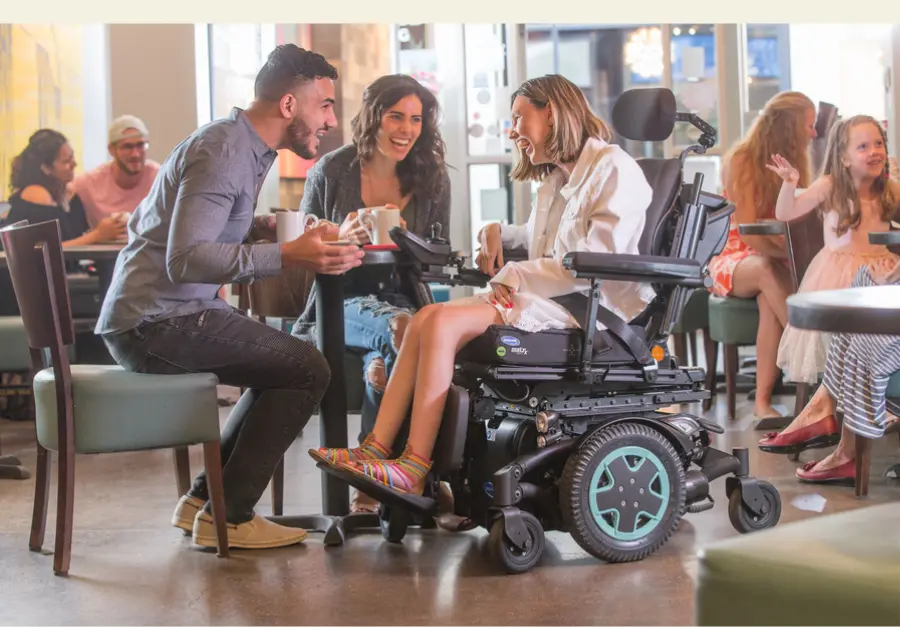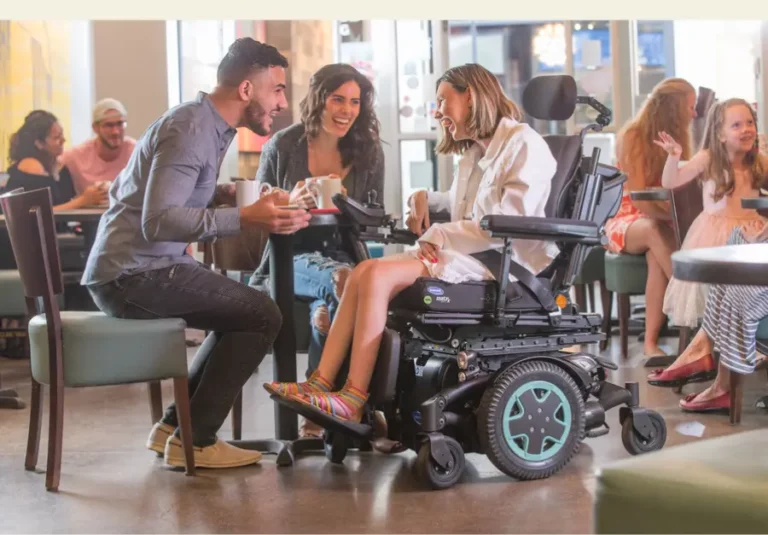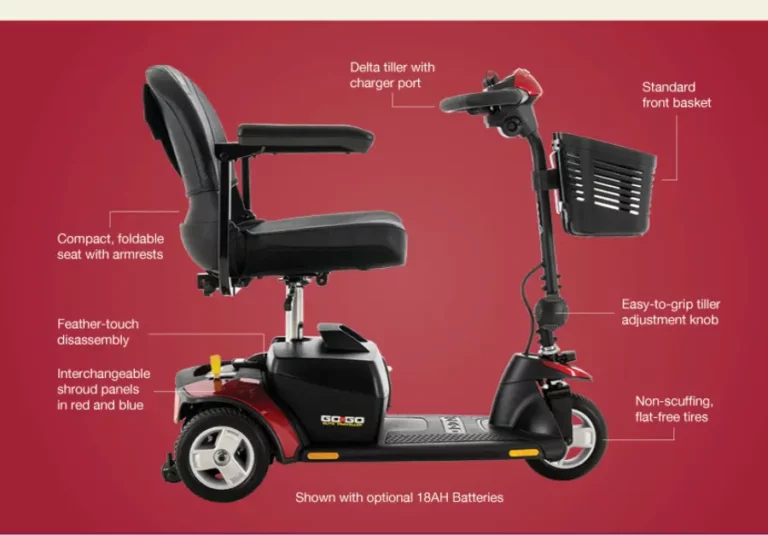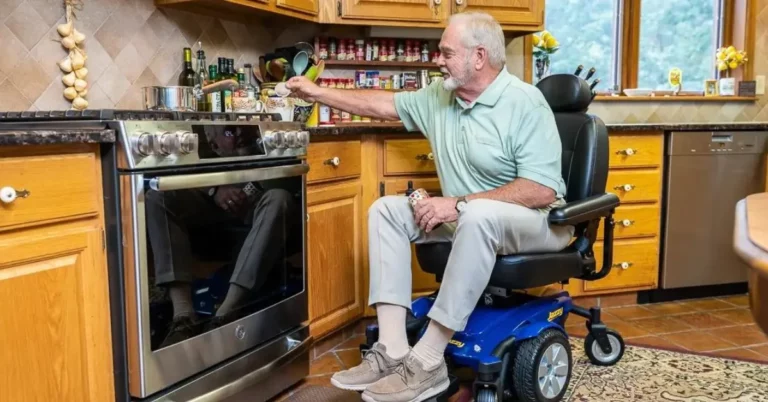Are Power Wheelchairs Covered by Medicare, Medicaid, or Private Health Insurance?
Key Takeaways:
- If you have durable medical equipment (DME) benefits as part of your plan, then for most health insurance companies, you have coverage for a power wheelchair or an electric scooter.
- A face-to-face examination is required from a qualified medical professional to qualify for coverage.
- The medical professional must document that you have a true medical need for a power wheelchair or scooter.
- A DME company, such as UniversalMed Supply, must submit medical documentation and the required order forms to your insurance for prior authorization before delivery.

Introduction
Power wheelchairs and electric scooters empower individuals confronting mobility limitations from illness or injury to engage in everyday life activities with increased independence. Coverage of power mobility devices, typically covered under the Durable Medical Equipment (DME) benefit for most insurance plans, is dependent on meeting specific criteria. Generally speaking, for a health insurance provider to cover the cost of a power mobility device, they must confirm an individual’s medical need arising from an illness or injury. To do so, your doctors must conclude and document that using a power mobility device will substantially enhance your daily living activities.
Traditional Medicare’s Requirements
Medicare is a federal health insurance program primarily available for individuals aged 65 and older, as well as certain younger individuals with qualifying disabilities.
If you have traditional Medicare, the first thing you’ll need to get coverage for a power wheelchair or electric scooter is to make sure you have Medicare Part B active. Medicare Part B is the part of Medicare that provides you with DME benefits.
As mentioned, health insurance companies impose specific criteria and processes for obtaining coverage for these devices. With Medicare being a nationwide government health insurance plan, many other health insurance companies have similar rules and guidelines to qualify for power mobility devices that stem from Medicare’s guidelines.
Here are Medicare’s high-level requirements:
- A qualified practitioner must conduct a face-to-face examination, commonly referred to as a mobility evaluation.
- Your practitioner should provide detailed notes documenting a health condition and why it significantly affects your ability to move around the home and perform daily living activities, including bathing, using the toilet, getting in and out of bed, feeding, and self-grooming.
- Your practitioner must rule out lower grade DME, such as canes, walkers, and manual wheelchairs, as sufficient devices to meet your mobility needs.
- Your practitioner should also determine that you possess the ability and desire required to operate a power mobility device safely and effectively.
- Your practitioner or your Durable Medical Equipment (DME) provider, such as UniversalMed Supply, will need to complete an assessment of your home to ensure a suitable environment.
- Finally, once your practitioner has confirmed your need for support, a power mobility device should be prescribed.
A common misconception is that a prescription alone is sufficient to secure funding from Medicare for a power wheelchair or electric scooter. A prescription is jus one of the required components.
Typically, your practitioner is going to be your primary care doctor. However, this does not have to be the case; qualified nurse practitioners and physician assistants can also serve as the your practitioner in this process. Additionally, healthcare providers from different specialties, such as pain management or neurologists, can conduct the required face-to-face mobility evaluation, while podiatrists and chiropractors are not acceptable.
These are just the initial high-level requirements. Additional details may be necessary based on the complexity of your diagnosis and the type of device your are seeking. We can provide more accurate guidance to your practitioner’s office once you initiate the process and we get a better understanding of your specific mobility limitations.
For more information on the types of power mobility devices covered by insurance, check out this blog post : What Types Of Power Wheelchairs Are Covered By Health Insurance?
Medicare Advantage, Medicaid, and Private Health Insurance Plans
Coverage requirements may vary if you have something other than traditional Medicare as your primary health insurance, such as a Medicare Advantage Plan through companies like United Healthcare, Humana, Aetna, or Blue Cross Blue Shield.
For instance, some insurance companies may require both a report from a physical therapist (PT) as well as a face-to-face mobility evaluation from your practitioner.
If Medicaid is your primary insurance, the coverage details and necessary documentation for obtaining these devices can differ depending on your state. For example, a report from a PT may be necessary, or your state may require the completion of specific forms.
Prior Authorization
In most cases, power mobility devices require prior authorization from the insurance company before you can acquire a device from your supplier. For example, UniversalMed Supply, as your chosen DME supplier, must collect all the required documentation and submit it to your insurance company for review and authorization approval before delivery.
Prior authorization is a crucial step in the process that can cause delays if requirements aren’t documented, organized, and submitted accurately. Mistakes could lead to denials from your insurance company, resulting in the prolonging of an already lengthy process. At UniversalMed Supply, we take pride in highlighting that our prior authorization team boasts an almost 90% first-time approval rate!
Conclusion
UniversalMed Supply has been collaborating with patients and their practitioners for over 20 years to navigate the medical necessity documentation and prior authorization processes. We possess the tools, resources, and expertise to streamline and simplify this process for both patients, caregivers, and practitioners.
To determine if we can accept your insurance and assist you in acquiring the power mobility device you need, please contact our mobility team at 888.364.5897.



